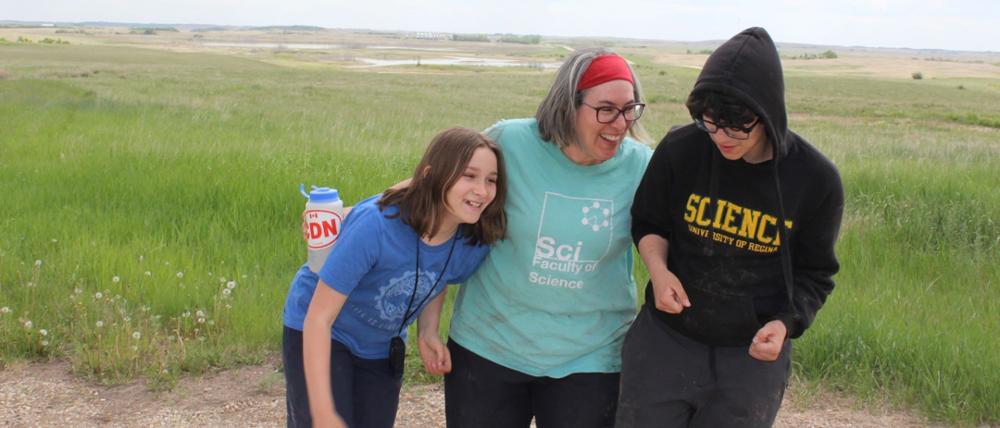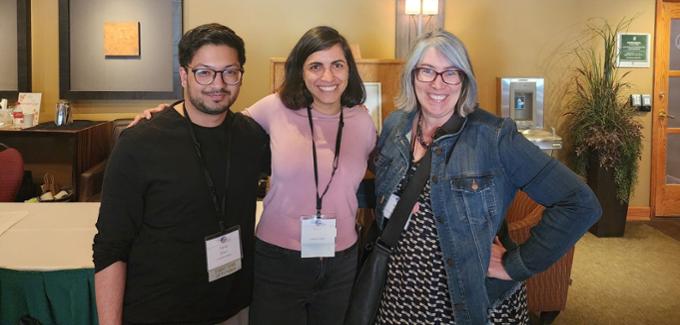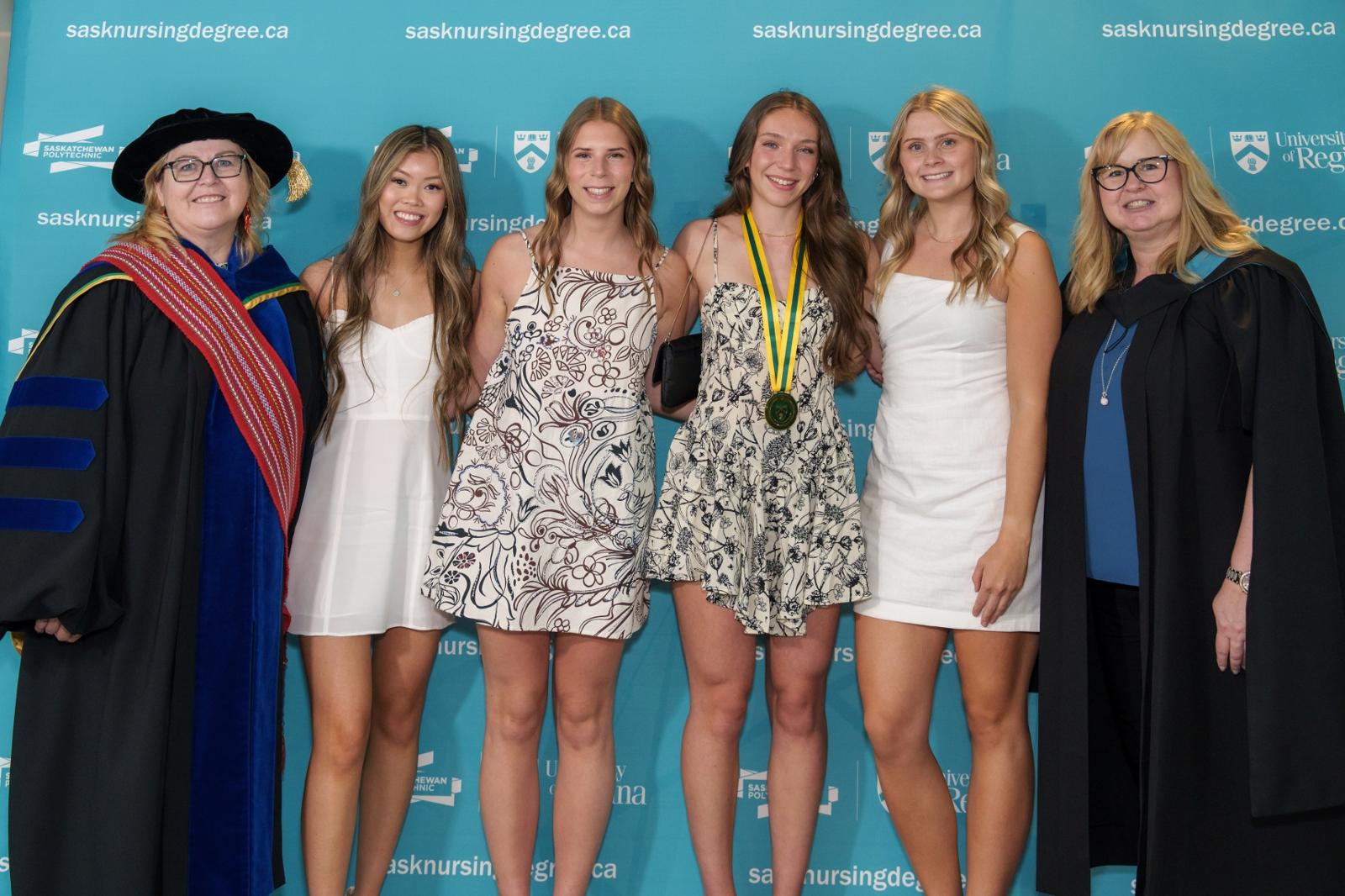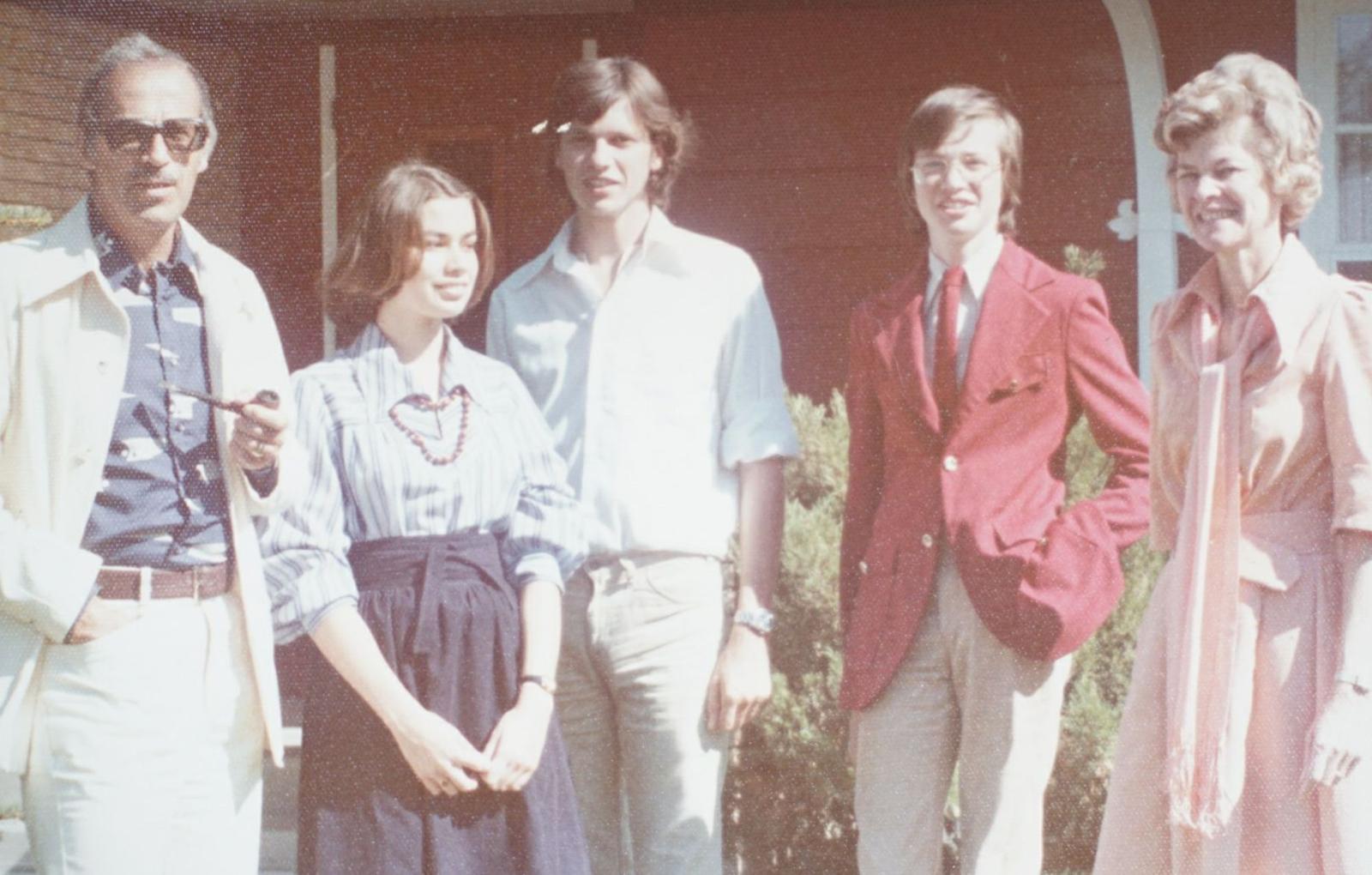Dr. Britt Hall, Professor in the Department of Biology, was recently awarded the Faculty of Graduate Studies and Research (FGRS) Award for Outstanding Graduate Supervision. This award recognizes a faculty member who has demonstrated a record of excellent mentorship and supervision of graduate students at the University of Regina.
Growing up in Winnipeg, the young Britt Hall spent her summers with her mom around Kenora, Ontario deep in Canada’s Boreal Forest with its many incredible lakes. That annual immersion in nature surely influenced Hall’s future academic and career choices.
After starting her research career in the International Institute for Sustainable Development (IISD) Experimental Lakes Area examining mercury cycling in reservoirs, Dr. Hall spent some time doing environmental consulting. When an opportunity to continue her graduate work came up, again in the IISD Experimental Lakes Area, she was able to explore how mercury and carbon moved in the environment.

“I love the enthusiasm that my students bring to the science that I love to do,” says Hall. “As I have advanced in my career, I am not able to spend as much time exploring the mysteries of our natural environment; working with my students allows me to do this.”
Dr. Hall went on to graduate from the University of Alberta with a PhD in Environmental Biology and Ecology, and joined the Department of Biology at the University of Regina shortly after. Since then, Dr. Hall has made her way from Assistant Professor to Professor, mentoring and supervising graduate students along the way.
I truly cannot understate the importance of Dr. Hall as a role model for women in science. — Douglas Farenick, Dean of the Faculty of Science
“When the opportunity to come to U of R presented itself, I was thrilled. I could continue to study mercury to my heart's content,” says Hall. “Biogeochemistry captured me and I just keep following that passion.”
Dr. Douglas Farenick, Dean of the Faculty of Science, has witnessed first hand the leadership that Dr. Hall provides to her graduate students. He believes it is especially important for women in STEM (Science, Technology, Engineering, and Mathematics) to have access to strong role models, like Dr. Hall, who can offer inspiration and guidance.
“Dr. Hall is a woman with lived experiences in the competitive world of STEM research and she stewards her graduate students in a manner that helps them recognize and confront gender or racial inequities and biases and micro-aggressions,” says Dr. Farenick. “I truly cannot understate the importance of Dr. Hall as a role model for women in science.”
Zohra Zahir, PhD Candidate in the Department of Biology, has been working with Dr. Hall since 2020. Dr. Hall has not only been a supervisor to Zahir, but also a mentor and friend.
“When I first became a teaching assistant in our department, I had no prior experience; however, with her guidance, I was able to grow as a teacher and provide better support to my students,” says Zahir. “Dr. Hall is truly an extraordinary supervisor and deserves to be recognized for her outstanding contributions.”
Interested in pursuing a graduate degree where you could be supervised by someone like Dr. Hall? Check out the U of R’s 50 Master's, 20 Doctoral, and 13 Graduate Certificate programs.
When it comes to receiving the award and being recognized for many years of leadership and supervision throughout her career, Dr. Hall credits the great students she has worked with along the way.
“I feel a bit sheepish about it because the students that I have worked with over the course of my career are really exceptional and very easy to mentor,” says Dr. Hall. “This award is an honour I really share with them.”
Banner photo provided by Dr. Britt Hall
About the University of Regina
Set in the heart of the Canadian prairies we are a comprehensive, mid-sized university where the opportunities are as limitless as the horizon. Our campuses are on Treaty 4 and 6 - the territories of the nêhiyawak, Anihšināpēk, Dakota, Lakota, and Nakoda peoples, and the homeland of the Michif/Métis nation. It is our responsibility to strengthen relationships with Indigenous communities to build a more inclusive future for all. Our three federated colleges, 10 faculties, 25 academic departments, and 18 research centres foster innovative research with practical and theoretical applications. We are committed to cultivating the potential of our 16,000 students and supporting their health and well-being. We take learning beyond the classroom through work and volunteer experiences to develop career-ready graduates.
Let’s go far, together.




